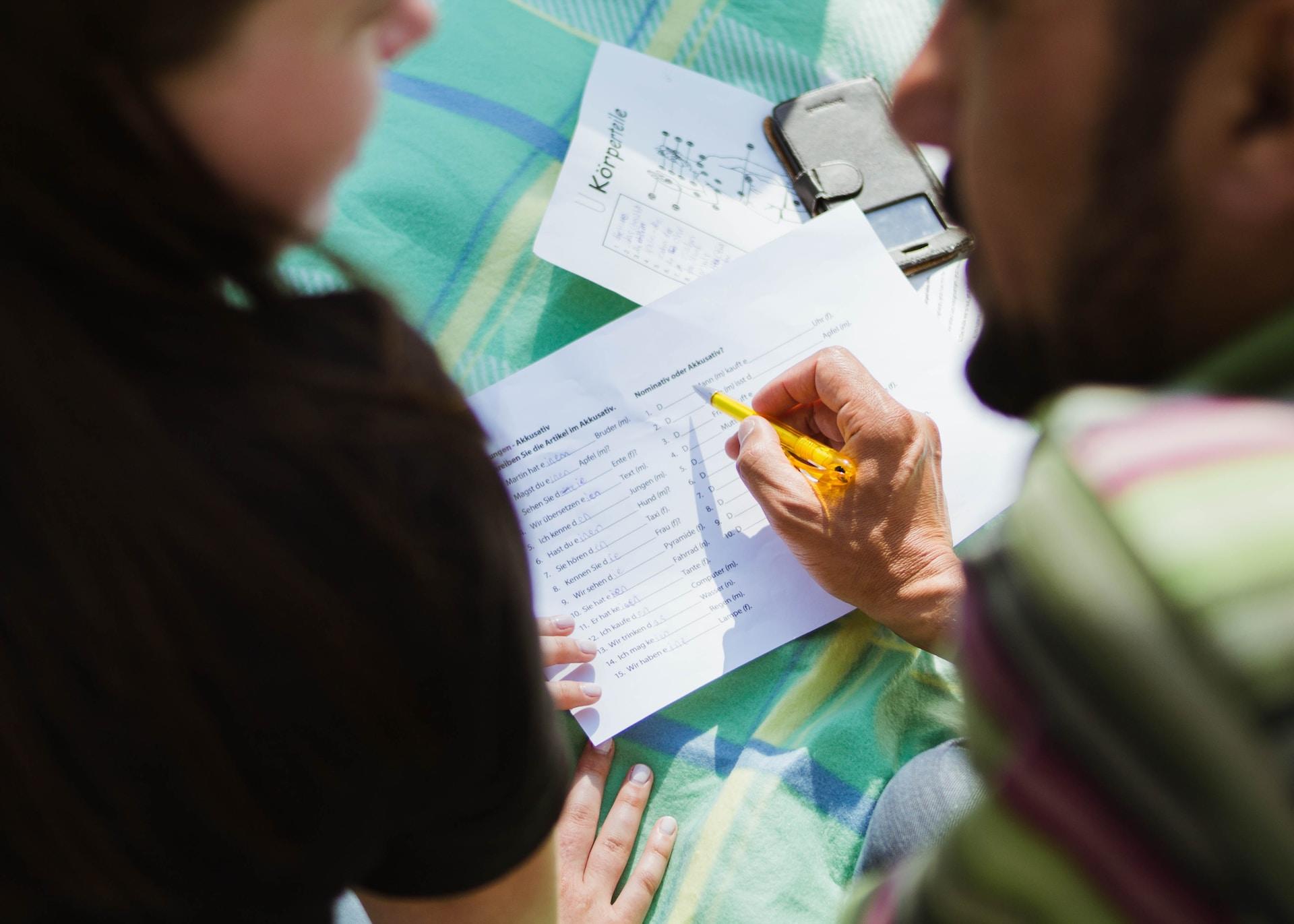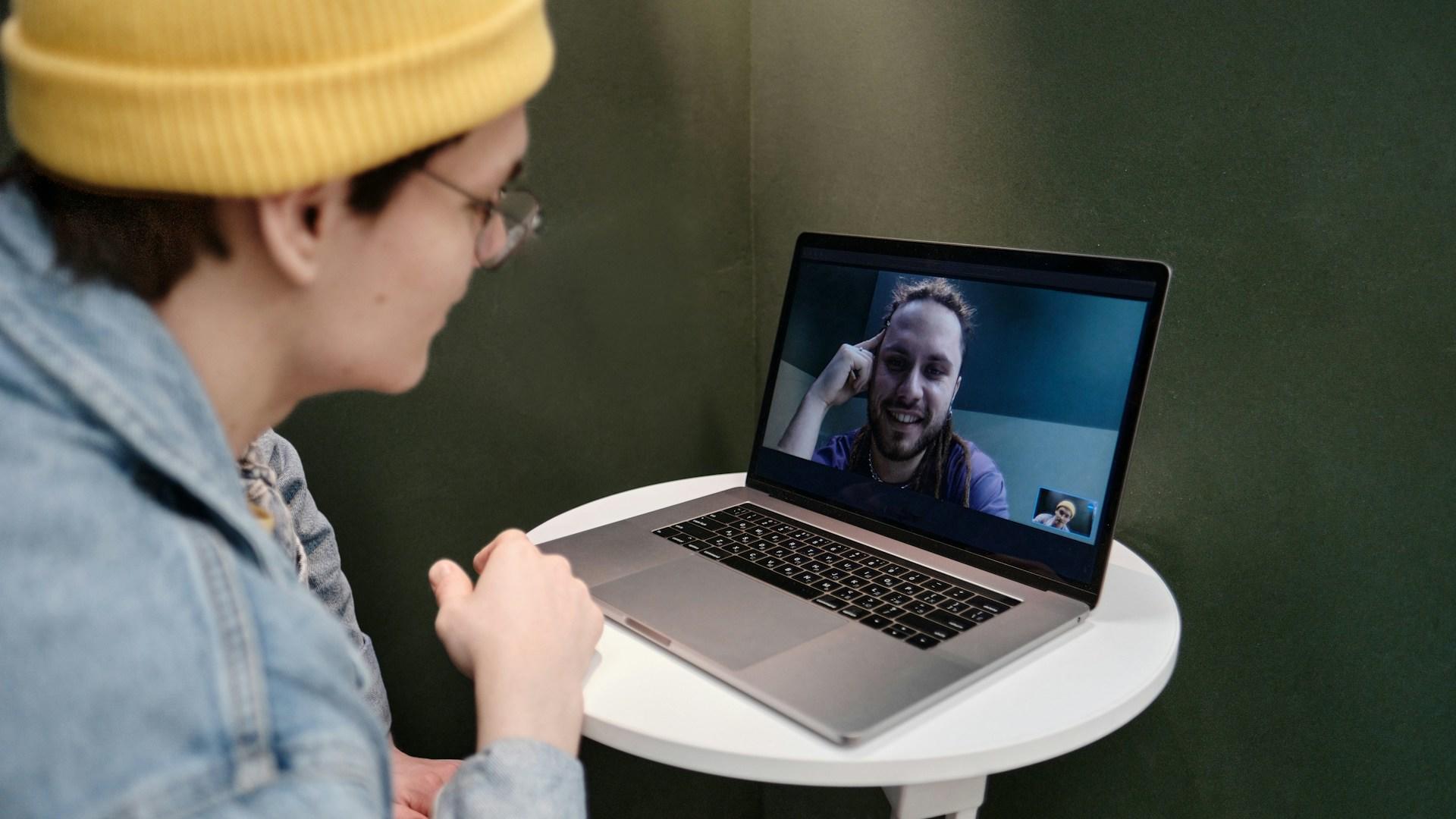Learning a new language can be frustrating. You go to your weekly beginner's French course and study your verb tenses and vocabulary lists. You do your best to understand French grammar.
And yet, when you speak French, all you say is bonjour and merci. How can that be when you worked so hard? Here are a few tips to help you learn French fast while making the most of your French language course.

Tips for Learning French: Post-Its and Flashcards
Flashcards are a fun way to study French. You can use these cards for vocabulary - simply writing words and phrases. Or for grammar, to boost your conjugation and grammatical gender skills.
How to Learn French Fast with Flashcards
Your 'official' study materials present information in a particular order. They do not associate new information with past lessons, which makes it harder to build connections between what you already know and what you're learning.
When you create flashcards, you organise the information in a way that suits your learning style and needs. Working with the information - manipulating it works different aspects of knowledge-building. Handwriting your cards builds new memory pathways in your brain, making the information easier to memorise.
You might build different learning decks to serve different parts of French learning. For instance, vocabulary flashcards should have the French word with its article (masculine or feminine) on one side and the English translation on the other. You may include plural forms on the same card or build a separate deck for plurals.
Grammar flashcards can either simply have a condensed version of a grammar rule on one side and the description of the rule on the other, or you can work with questions on one side (when do you use the pluperfect? How is the pluperfect formed? Where does the adverb go?) and the answer on the other.
Comprehension flashcards have little texts pasted onto them (larger index cards) or simple phrases with either the English translations or just the vocabulary on the other side. These are more challenging and take longer to make, but they will spice up your French learning with quotes from famous French authors or excerpts from your favourite Franco-Belge comics.
To get the most benefit from your flashcards, don't cycle through them in the same order. Alternate between French and English sides. Mix them up so you won't anticipate the next card. Play games with them: organise them alphabetically or by grammatical gender.
You could also build flashcard study sets on apps like Quizlet or Anki. Digital flashcards won't be as beneficial as cards you write and can flip through manually. Still, better to have some type of flashcard than none at all. And don't forget that flashcards are portable; you can take them to the café or use them during your French lessons online.

Tips for Learning French with Sticky Notes
This idea involves writing the words for the most common objects onto Post-Its and sticking them onto the actual object. Your door will be 'la porte', your telephone becomes 'mon téléphone' and your sofa is now 'le canapé'. This exercise helps you associate common words with actual objects rather than translating them into English words when memorizing them.
Once you've mastered your sticky-note vocabulary, you could build a narrative in French based on what is in the room. You might further challenge yourself by writing questions on your post-its that you have to answer out loud in French.
We've written a whole separate article about fun games to learn French. Some involve the use of sticky notes and others rely on flashcards. All of them will maximise your opportunity to use your French language skills outside the classroom.
How to Learn French Fast With a Language Diary
Keeping a French language diary is a variation on the post-its and flashcards. Your online language school or your French teacher likely instructs you to write simple essays or phrases in French. This helps you to improve your written French and expand your French vocabulary. You can take this exercise to the next level by taking the initiative.
You should write something in French every day. It can be a shopping list or a summary of what you want to do or have done that day. It can be your thoughts or feelings.
As you learn new words and phrases, using them often helps cement them into your knowledge base. Furthermore, as we pointed out earlier, handwriting helps to reinforce the learning process.
While you are still learning French for beginners, your sentences will be simple. "Je suis heureux/heureuse", for example. As you progress to Intermediate French or Advanced French language lessons, you'll write more complicated sentences, maybe even paragraphs and stories. You might even read them out loud during your French courses, challenging your classmates to keep a diary, too.
Tips for Learning French Through Immersion
Native English speakers sometimes have trouble with the correct pronunciation of French words. The French U and R sounds seem to cause the most problems but cultivating a French accent is challenging, too. The best way to improve your French accent and speak French fluently is to immerse yourself in the language.
The ultimate immersive experience is living in a French-speaking country. However, as moving to France is not an option for everyone, here are a few alternatives on how to learn French by immersion without visiting yet another French language course.

How to Learn French Fast by Reading
Reading regularly in French will expose you to words in context and focus your memory while expanding your French vocabulary. Beginners should start with children's books; the simple language and accompanying pictures make understanding easy.
To practise reading in French at a more age-appropriate level, a French newspaper is ideal because of the range of topics covered. However, if you're not interested in current events in French, you could read French hobby magazines or blogs on French websites. And of course, you can read a book in French at any level - and we’re not talking about textbooks.
Tips for Learning French with Listening Resources
French films and series form a trifecta of French learning resources. You can see and hear 'real' French against a backdrop of French cultural norms. Should you switch on French subtitles, you'll hone your French reading skills at the same time. Indeed, this is a great way to match the spoken and written word.
You might wonder what 'real' French means. It's the type of French that native French speakers use to communicate. Real French is very different from the sometimes stilted offerings in your textbooks and classroom. It's the same type of French you'll hear when you listen to French podcasts.
You'll find some podcasts targeted at people studying French as a foreign language. Often, these channels provide transcripts you can download and follow along with. But don't tarry on level-appropriate podcasts. You can also listen to the news in French or tune in to French radio.
More advanced students might listen to audiobooks in French. Especially if you lack the time to sit down and read, audiobooks are a wonderful way to absorb the phonetics of French and perfect your listening skills. Indeed, all of these listening activities will help you tune your ear to the melodious French sound.
However, you've yet another way to train your ear to French: by listening to French songs. French song lyrics are even more 'real' than movies and series; they include a lot of slang and linguistic shorthand to make the lyrics work.
My mate's French class Melbourne always starts with a French song. I daresay they are more adventurous in their language usage than many students I know. They don't even mind belting out a verse or two in public.

How to Learn French Fast with French Language Exchange
All of the language learning methods mentioned in this article so far are passive. By that, we mean you're writing, reading and listening to the language. Like any other tongue, French is made for speaking so you must find people to speak French with.
Thank our lucky learning stars for the technology at our disposal! We only need to sign up for a language exchange platform to find native French speakers keen to help us. It only costs us the time to help them practise their English.
Language exchange is an enjoyable way to apply your French skills in context. It’s a way to get free French lessons, immerse yourself in the language and help someone out for whom English is a second language. Your conversational French will improve, as will your pronunciation and your understanding of French idioms.
Language buddies don’t just help you improve your French accent, though. These platforms are about cultural exchange, too. You'll describe your life and French lessons Sydney and they'll tell you all about their English courses and life in France. Adding these sessions to your other learning initiatives is how to learn French fast.
Summarise with AI:















